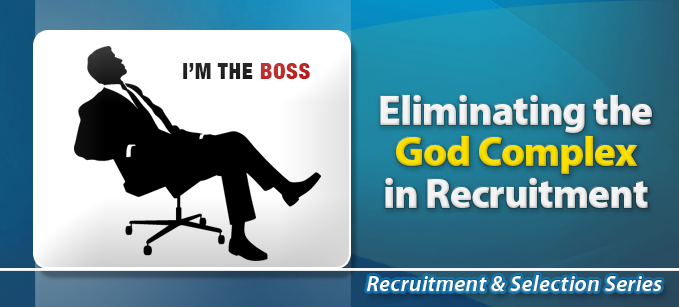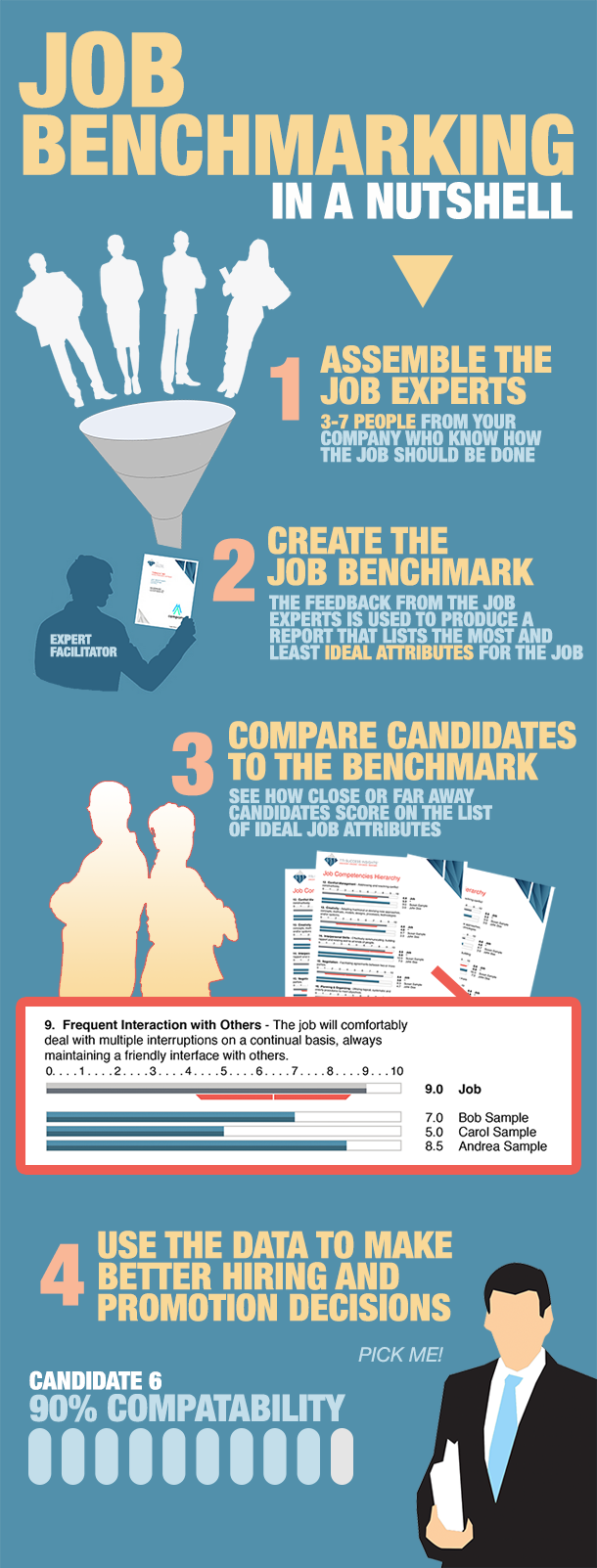Eliminating the God Complex in Recruitment

The “god complex” can be found in hiring managers who believe that they have rare and wonderful powers of observation. Basically, these managers believe they're smart enough to determine a good candidate when they see one. People like this prefer to ignore rigorous interviewing practices and instead formulate their own questions and go off “gut” feel.
People with the god complex love stupid interview questions:
- What’s your greatest weakness?
- Where do you see yourself in five years?
- If you were stuck on a desert island, what item would you take?
- Sell me this pencil
The problem with these types of questions is that they don’t have anything to do with whether or not the candidate can actually do the job (that is, unless the job happens to be door-to-door pencil sales). These questions simply serve to satisfy the particular prejudices of the interviewer.
Subjective bias is a major obstacle in the recruitment process. A good example of bias overwhelming common sense in recruiting is the practice of screening out candidates who have typos in their resumes, even when the application in question is for sales. Companies that take this line may very well be excluding top sales performers from their ranks. What's more, these top guns could easily wind up working for a direct competitor. Grammar may certainly have some relevance to jobs in the journalism, copywriting, and copyediting space — but by and large sales is a profession where far more important criteria are relevant to success.
Biases are neither right or wrong, nor good or bad. We all have them; dozens and dozens of them. Biases are simply a reflection of what our brains tend to pay attention to, and what they tend to dismiss. A biased viewpoint is injected into the interview room when we focus on traits that are important to us, when we should be focusing on traits important to the job.
One of the most well known biases relevant to recruitment is the halo effect. This comes into play when we notice something that we like about someone (e.g., we discover the candidate shares fishing as a favourite pastime) and this piece of knowledge inflates our overall impression of the individual’s personality and competence. It’s not something that we necessarily realise we're doing at a conscious level. Biases can be extremely subtle and difficult to detect, even for those who are familiar with cognitive psychology research, which is why it's so important to have a process in place to minimise the impact of interviewing bias.
The simplest way to reduce subjective bias and deal with interviewers who suffer from the god complex is to use a job benchmark. The job benchmarking process identifies the attributes or personal qualities that are most important to success in a specific job. This exercise involves the help of an impartial expert facilitator working alongside people who know the job best, combined with state-of-the-art assessment tools, which are used to build a profile of the ideal candidate. From there, it's simply a case of comparing which candidates best fit the job profile and using the information in the profile to make more informed hiring decisions.
Overview:

Limited Benchmarking Opportunity
We are currently looking for companies in Australia and New Zealand to help us replicate benchmarking research projects from other countries and publish some local research. As part of these research projects, we will help by subsidising some of the assessment costs, which will represent significant savings for the companies involved. The jobs that we are interested in identifying the ideal benchmark for will be from a range of industries, including (but not limited to) insurance, banking, legal, professional services, sales, and telecommunications. If you are working in HR, recruitment or OD for one of these companies, or would like to register your interest to have a job benchmarked in your company from another industry, please email: "Benchmark Please" to research@dtssydney.com with your details and we'll send you further information!
Topics:
Recruitment & Selection
Theo Winter
Client Services Manager, Writer & Researcher. Theo is one of the youngest professionals in the world to earn an accreditation in TTI Success Insight's suite of psychometric assessments. For more than a decade, he worked with hundreds of HR, L&D and OD professionals and consultants to improve engagement, performance and emotional intelligence of leaders and their teams. He authored the book "40 Must-Know Business Models for People Leaders."

/7%20Traits%20of%20Highly%20Emotionally%20Intelligent%20People.png?width=374&name=7%20Traits%20of%20Highly%20Emotionally%20Intelligent%20People.png)
/jack%20welch_%20the%20chro%20is%20equal%20to%20the%20cfo%20(if%20not%20more%20important).png?width=374&name=jack%20welch_%20the%20chro%20is%20equal%20to%20the%20cfo%20(if%20not%20more%20important).png)
We Would Like to Hear From You (0 Comments)